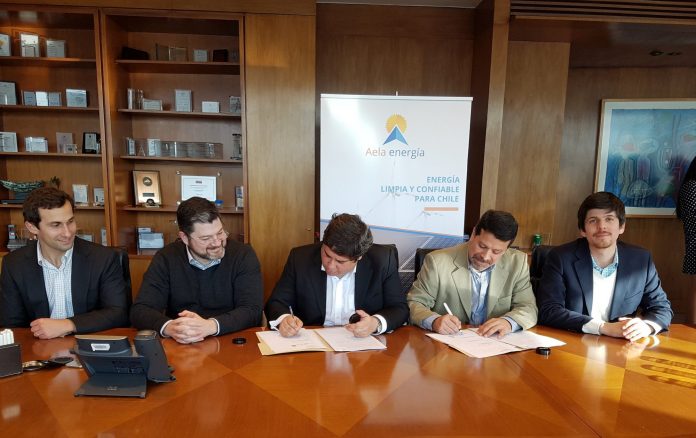
Chile’s Atacama Desert and Los Lagos Pacific regions won financing of US $135 million to continue its momentum towards building more renewable wind energy projects from the Inter-American Investment Corporation (IIC), the private arm of the Inter-American Development Bank Group (IDB).
Aela Energía, a renewable energy firm based in Chile, is expected to operate the projects.
Get SmarterWhy This Matters
Non-conventional renewable energies currently represent around 18 percent of the Chile’s energy, 47 percent of which is represented by solar energy.
By comparison, non-conventional renewable energies in the U.S. accounted for just nearly 15 percent of its total energy in 2016.
“Last year, 55 percent of all financing funds were for renewable energy,” said Aela Energía’s commercial manager, Daniel Garrido. “Many markets in the world have seen that unconventional renewable energies are very competitive and banks are very interested in participating in the financing of such initiatives.”
Energy 2050
Once completed, the financed wind projects will have a combined installed capacity of 332 megawatts. The Latin American country, ranked #2 globally by Climatescope second to China, has a total installed power capacity of nearly 20 gigawatts. Annually, the new wind farms are projected to supply approximately 907 gigawatts of electricity to Chile’s grid.
This follows Chile president Michelle Bachelet’s push to ensure her country’s citizens have continuous and quality access to energy services via Energy 2050, a set of policies and goals she started for the country in December 2015.
Related Wind Farm News
Amazon’s new wind farm in Texas could add 1 million megawatt-hours to U.S. electrical grid.
Scotland’s Hywind offshore wind farms, with turbines anchored to the sea floor, could provide energy to 20,000 homes.
Ireland’s Connemar just commenced commercial operation of its own offshore wind farm operation.
New York’s Empire Wind that is being revived will also be offshore.
Indonesia’s offshore wind farm will be online in 2018.
Hawaii in the U.S. ought to take note, and get smarter.







